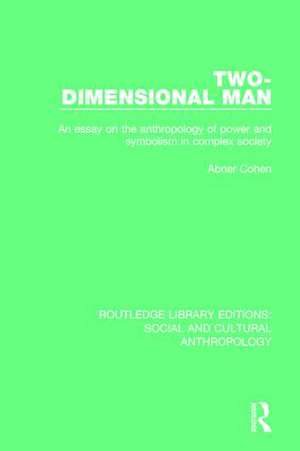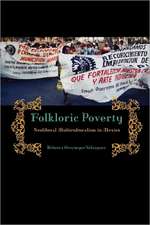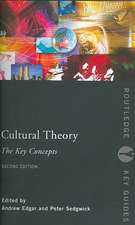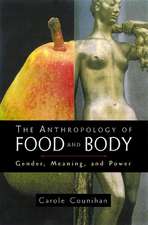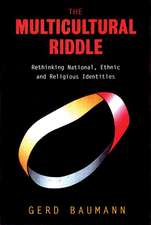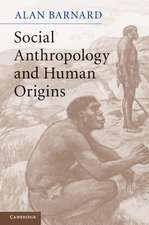Two-Dimensional Man: An Essay on the Anthropology of Power and Symbolism in Complex Society: Routledge Library Editions: Social and Cultural Anthropology
Autor Abner Cohenen Limba Engleză Hardback – 21 iul 2015
Preț: 679.53 lei
Preț vechi: 1111.50 lei
-39% Nou
Puncte Express: 1019
Preț estimativ în valută:
130.04€ • 141.21$ • 109.24£
130.04€ • 141.21$ • 109.24£
Carte tipărită la comandă
Livrare economică 23 aprilie-07 mai
Preluare comenzi: 021 569.72.76
Specificații
ISBN-13: 9781138928725
ISBN-10: 1138928720
Pagini: 174
Dimensiuni: 156 x 234 x 15 mm
Greutate: 0.39 kg
Ediția:1
Editura: Taylor & Francis
Colecția Routledge
Seria Routledge Library Editions: Social and Cultural Anthropology
Locul publicării:Oxford, United Kingdom
ISBN-10: 1138928720
Pagini: 174
Dimensiuni: 156 x 234 x 15 mm
Greutate: 0.39 kg
Ediția:1
Editura: Taylor & Francis
Colecția Routledge
Seria Routledge Library Editions: Social and Cultural Anthropology
Locul publicării:Oxford, United Kingdom
Public țintă
Postgraduate and UndergraduateCuprins
1. Introduction: the Bizarre and the Mystical in Modern Society 2. Power Relations and Symbolic Action 3. The Dialectics of Politico-Symbolic Interdependence 4. Political Man – Symbolist man 5. Symbolic Strategies in Group Organisation 6. ‘Invisible’ Organisations: Some Case Studies 7. Conclusions: Symbolic Action in the Politics of Stratification
Descriere
Central to this original study, first published in 1974, is that Political Man is also Symbolist Man, that man is two-dimensional. The book explores the possibilities of the systematic study of the dialectical interdependence between power relationships and symbolic action in modern, complex society. The discussion focuses on the processes by which interest groups, that cannot organise themselves formally, manipulate different types of symbolic formations to articulate a number of basic organisational functions: distinctiveness, communication, decision-making, authority, ideology and socialisation. The analysis is worked out in terms of specific case studies of different types of groupings, or ‘invisible organisations’ – ethnic, elitist, religious, ritually secret, cousinhood – which go through processes of cultural metamorphosis, shifting from one symbolic strategy to another, in response to changes in their circumstances. In conclusion, the discussion is brought to bear on the study of stratification in large-scale industrial society generally.
